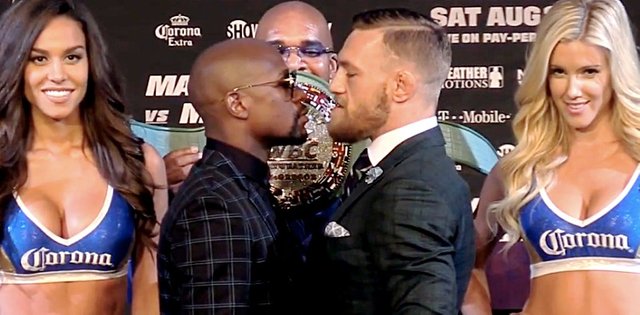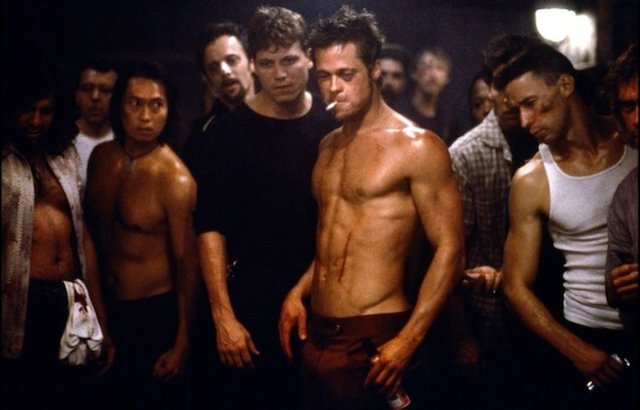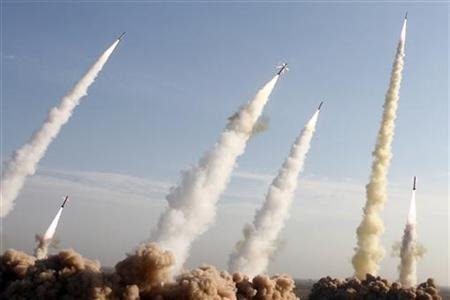[The Library Information Warfare] Physical Security

I was planning on doing this post long before I knew what would happen today.
At the time of writing, the mood worldwide is somber. Today, October 2nd, 2017, someone opened fire on a crowd of 20,000 people in a Las Vegas country music concert. At the time of writing, the death toll nears 60, with over 500 injured. With an injury count that high, the death toll will certainly rise.
At the end of the day, 'ballistic' attacks, ie those that affect the 'real world' instead of the cyber realm, are the most impactful. A death toll of 60 or more will always hit home harder than a credit firm breach affecting millions. I understand why, of course. Money can be replaced, identity mended, but the loss of a loved one or a friend hits far harder, with permanence that leaves a life-long chill in the bones.
The truth is, I have experience with 'physical security' as well. I have friends and family in law enforcement, but most of my experience has been from the last year and a half I've spent as a bouncer in a nightclub in my college town. The lessons I've learned from this job are invaluable, and I believe that while the technical intricacies of cyber security are important, physical security is an increasingly important skill to learn.
This post is going to differ in structure from the others. I'm going to list important lessons learned and applications to better awareness of physical security.

- Situational Awareness - while this list isn't necessarily in order of importance, this topic is listed first for a reason. Situational Awareness, or SA, is the most important and most difficult aspect of any type of security, but especially physical security. In a bar setting, this is keeping your head on a swivel to take in your surroundings, while looking for key indicators of trouble brewing. Leaving no blind spots while examining body language of individuals in a crowded area is difficult, especially with drinking involved. One thing that I try to train new doormen on is how to spot a conflict before it begins. I'm going to go into this in detail, as it's very important.
Posturing is one key indicator of a possible conflict. When being confronted by another individual, anger can often be easy to catch. Brows furrowed, increase in volume in speech, and certain body language is a good sign of conflict. This body language includes erratic movement of hands, narrowing the distance, and 'squaring up' of the shoulders. Hands raising to a fighting position is an obvious one, but should be regarded as the last posture before a verbal argument goes ballistic.
Mental state is also important. In the setting I'm most familiar with at a bar, this usually has to do with how many drinks an individual has had. I tend to get warmer and more welcoming as the night goes on, but many people are angry drunks. It's best to watch for people hammering back drinks, but this is not the only case of mental state playing a role in physical security. Depressed or erratically angry individuals, especially under the influence of drugs or alcohol, can be in a mental state that allows for more probability of violent, dangerous behavior. Continued depressive or angry behavior over time can show a pattern, a subject I'll broach further on. This continued behavior oftentimes spirals, so attention to the mental state of a particular individual is important. I've had people I've seen happy 6 days out of the week walk into a bar, throw a few back, and go ballistic just because it was a bad day. Always pay attention to the mental state of those in your vicinity.
Patterns are incredibly important. If you know a dangerous individual frequents an area, or an area is frequently dangerous in general, avoid it at all costs. If I know someone frequently comes into my bar starting trouble, I generally warn my coworkers and keep him out of the bar. It seems pretty basic, but pattern analysis is incredibly important in every kind of security. Pay attention, remember patterns, and act accordingly.

- Be comfortable with confrontation - this can be tough. I am generally pretty comfortable with all kinds of confrontation. This comes from physical fitness, a lot of times, because I've trained my body and mind to be comfortable facing all kinds of threats. Honestly, though, this is a mental challenge over a physical one. I've known coworkers who were physically non-threatening but were comfortable enough with confrontation that they often enough could handle themselves just fine. I've also known coworkers who were physically impressive but couldn't handle the threat of confrontation.
Here is why this is important. Contrary to popular belief, the average person is not comfortable with confrontation. They are much more likely to back down when faced with an opponent that is. If you approach a situation, or are unexpectedly approached with a situation, where you have to face an opponent, relax. Convey confidence even when you have none. If you can, talk your way out of it, calmly but assertively. But always operate with the idea of appearing much more comfortable in that situation than your opponent. This is a key psychological part of a confrontation.

- Body language wins fights - this builds off of the last point. Showing comfort in confrontation is only one part of the body language in an impending confrontation. I'll go through a couple of important points below, but the importance of body language in a confrontation cannot be overestimated. Knowing you can win a fight without landing a blow adds important confidence to any manner of physical security.
The 'I'm Gonna Skull-F**k You' Look. These are not my words, they're my boss's. This is the look you give before a confrontation goes ballistic, where you use your body language to convey far more confidence than you probably even should have. I like to say that it's not the strongest person who wins a bar brawl, it's the craziest. This look convinces your opponent that you are, in fact, the craziest. Practice your 'Skull-F**k' look in the mirror. Perfect the art of looking nuts.
Calm, but prepared. In general, before a verbal altercation goes ballistic, try to de-escalate with an air of confidence. Don't beg for mercy, but don't go straight for the 'Skull-F**k' look either. The goal is to avoid physical confrontation while still meeting your goals. In my area of expertise, this is convincing an individual to leave a bar without me having to drag them out. In other realms, this is convincing a burglar or robber to keep their hands from their weapons without having to draw your own, convincing a mugger to let you pass with your wallet in your pocket and your head intact. Convey calm, but do so with the confidence that convinces the opponent that you are prepared should things escalate. Don't put your hands up ready to brawl, but keep them near your face, in a more relaxed, composed position, showing that while you're not swinging first, you will be swinging last.

- Preemption versus Reaction - one of the most controversial topics in physical security. At what point is preemptive action necessary? Or legal? In my circumstances, the latter adds an extra layer of difficulty. There are certain actions I can and can't take to preempt a physical altercation. If I think someone is about to swing, I can lock them up in a choke and drag them outside, but I can't knock them out cold. Police officers have an even more difficult time, in that they cannot use lethal force until the threat of lethal force is preempted by the suspect.
In general, though, preemption is a good idea when you are necessarily convinced that a confrontation is about to go ballistic, and when all other options are exhausted. Try to leave, try to talk them down, try to avoid the situation entirely, but if there is no other avenue, there are certain steps to take to ensure preemptive action is effective.
A preemptive strike, in global warfare and on the street, is meant to be a devastating surprise. There are two parts to this. The devastation in a preemptive strike can be one of two kinds, either devastating enough to neutralize the target, or devastating enough to convince the target not to continue the confrontation. In my case, a preemptive strike can be a shove that knocks the opponent to the ground, a legal and often necessary action that may not neutralize the target but could convince them to de-escalate. In your case, this can be a strike to the jaw that neutralizes the target or a choke that leaves them unconscious. The surprise is equally important. A strike that the opponent doesn't see coming has a strong psychological effect that can, in itself, neutralize the opponent. A sucker punch is looked down upon in the street, but at the end of the day, you're alive.
Reactionary attacks have to be even more devastating. When surrounded by people like I am in a bar, I know I don't have long to end a fight before someone else steps in. With the loss of the element of surprise, the next move after being attacked has to be quick and effective. Sun Tzu recognized the importance of keeping a conflict short, and this aspect cannot be ignored. Finish a confrontation quickly and effectively, before returning to situational awareness and assessing the area for possible new opponents.
This barely scrapes the surface of physical security. There will likely be another post in the future regarding this topic, as I really do think it's unbelievably important. Pay attention to these topics, stay safe, and keep your head on a swivel.
---------------------
Like the post? I run this threat intelligence blog on Steemit and offer the content free of charge. If you're a Steemit user, you know that upvoting, which you do for free, magically puts a couple cents in my pocket. Maybe I'll buy a pack of gum with last week's earnings, but it all depends on your help. Not a Steemit user? My biggest metric of success is my viewership. If I don't make a cent but my content reaches a wide audience, that means my product is valuable and my efforts are worthwhile. Therefore, give me a share on your social media of choice, follow me on Steemit for more threat intel posts, and follow me on Twitter to see stupid memes and get updates when I post.
As Nightclub security myself I heartily agree with everything you said!
Manually curated by @openparadigm for
@informationwar
Downvoting a post can decrease pending rewards and make it less visible. Common reasons:
Submit
As security when someone comes in with a hostile tone I engage them right a away in a neutral manner and see how they react.
I ask how they are doing tonight with strong eye contact.
Downvoting a post can decrease pending rewards and make it less visible. Common reasons:
Submit
That's a good approach, one I take very often. Occasionally it's seen as snarky or smartassery, but it generally works to defuse a situation.
Downvoting a post can decrease pending rewards and make it less visible. Common reasons:
Submit
It either de-escalates or their attitudes get the better of them and I eject them immediately.
Downvoting a post can decrease pending rewards and make it less visible. Common reasons:
Submit
Sometimes they are right there on the cusp of being ejected and just need to toe across that line. I'd like to think I've gotten good at giving them that extra little push across the line. ;)
Downvoting a post can decrease pending rewards and make it less visible. Common reasons:
Submit
Saves more work later, ;]
Downvoting a post can decrease pending rewards and make it less visible. Common reasons:
Submit
Downvoting a post can decrease pending rewards and make it less visible. Common reasons:
Submit
a great overview, nothing to add to this!
in my own experience, I knew that I could win fights, BUT I had a evasive manner (unless i was drunk, when I was the agresssor more often - different story).
Contrary to what most people think, a diffident manner invites further confrontation as bullies will continue to push.
Downvoting a post can decrease pending rewards and make it less visible. Common reasons:
Submit
It's all about winning the confrontation. Sun Tzu believes that it's strategically best to do so without a fight at all.
Downvoting a post can decrease pending rewards and make it less visible. Common reasons:
Submit
I cant say I won all the fights that my demeanor caused, but I did want to illustrate your point about showing that you are willing to fight
folks shouldnt worry about looking belligerent
Downvoting a post can decrease pending rewards and make it less visible. Common reasons:
Submit
Congratulations @odinthelibrarian! You have completed some achievement on Steemit and have been rewarded with new badge(s) :
Click on any badge to view your own Board of Honor on SteemitBoard.
For more information about SteemitBoard, click here
If you no longer want to receive notifications, reply to this comment with the word
STOPDownvoting a post can decrease pending rewards and make it less visible. Common reasons:
Submit
Congratulations @odinthelibrarian! You have completed some achievement on Steemit and have been rewarded with new badge(s) :
Click on any badge to view your own Board of Honor on SteemitBoard.
For more information about SteemitBoard, click here
If you no longer want to receive notifications, reply to this comment with the word
STOPDownvoting a post can decrease pending rewards and make it less visible. Common reasons:
Submit